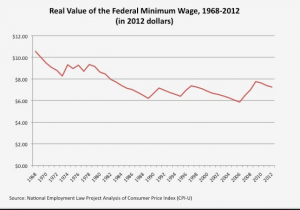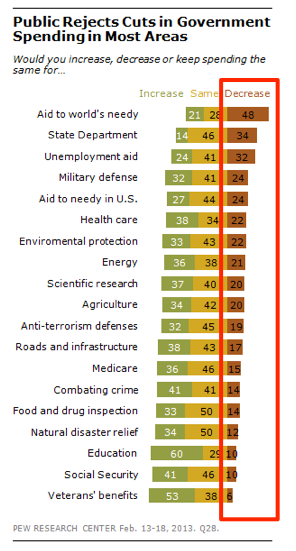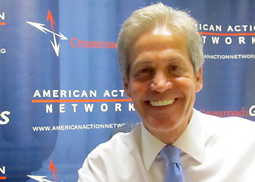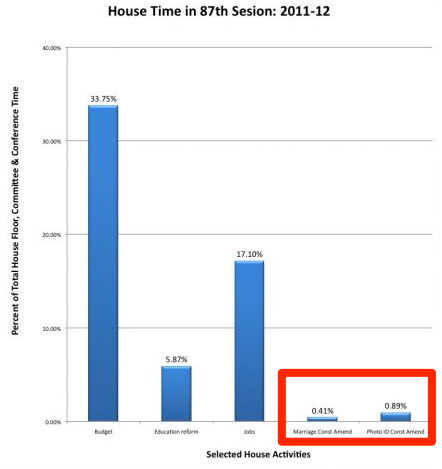 In 2014, the Minnesota Legislature will enact a long overdue minimum wage adjustment. A large majority of Minnesotans support an increase and the DFL controls the House, Senate and Governor’s office, so the stars are finally aligned for 357,000 of Minnesota’s workers and 137,000 of their children. If self-defeating bi-cameral bickering can be put aside, the only real suspense should be about the amount of the minimum wage adjustment.
In 2014, the Minnesota Legislature will enact a long overdue minimum wage adjustment. A large majority of Minnesotans support an increase and the DFL controls the House, Senate and Governor’s office, so the stars are finally aligned for 357,000 of Minnesota’s workers and 137,000 of their children. If self-defeating bi-cameral bickering can be put aside, the only real suspense should be about the amount of the minimum wage adjustment.
This year, the House passed legislation to set Minnesota’s minimum wage at $9.50 per hour, but it was rejected due to howls of outrage from the business lobby and Senate DFLers. They maintained that $9.50 per hour was extravagant.
Compared to What?
At first blush, I understand why a jump from as low as $4.90 per hour to $9.50 per hour could seem excessive. But Minnesota’s minimum wage hasn’t been adjusted in a very long time, and plenty of successful economies are operating very successfully with a much higher minimum wage. Here is some context for this debate:
- $5.15: Georgia minimum wage (lowest in the U.S.)
- $4.90-$5.25-$6.15: Minnesota minimum wage for trainees, small businesses, and large businesses respectively.
- $7.25: Federal minimum wage.
- $7.25: Minimum wage in ND, NE, SD, TX, WV, WI and many other states.
- $7.75: 2013 Minnesota Senate-passed minimum wage (not enacted).
- $9.00: National Democrats’ recommendation: The federal minimum wage increase endorsed by President Obama in 2013 (accompanied with an automatic annual adjustment for inflation).
- $9.19: Washington state’s minimum wage (highest among the states).
- $9.50: 2013 Minnesota House-passed minimum wage (not enacted).
- $9.95: Canadian minimum wage.
- $10.70: What the U.S. minimum wage in 1968 would be today if it had kept pace with cost-of-living increases.
- $10.93: Dutch minimum wage.
- $11.09: Irish minimum wage.
- $11.82: What a childless Minnesotan would need to cover basic needs.
- $12.09: French minimum wage.
- $14.03: What a Minnesota family of four would need to cover basic needs.
- $16.88: Australian minimum wage.
So, the House-recommended level does look generous compared to the Minnesota’s embarrassingly stingy status quo. But the 2013 House-enacted minimum wage looks downright miserly compared to what Americans were paid in the Nixon era, what many peer nation employers are paying, and what it actually takes Americans to cover the costs of basic needs.
The Floor for Negotiations
Minnesota’s cost-of-living is 105% of the national cost-of-living, a bit higher than average. Therefore, Minnesota’s minimum wage should be a bit higher than federal minimum wage to have the same purchasing power. One hundred and five percent of the $9.00 per hour recommended by President Obama would be $9.45 per hour, almost exactly what the Minnesota House enacted in 2013.
A minimum wage of $9.45 per hour is nowhere near what American workers were paid when in the Nixon era, or what contemporary Americans actually need to make ends meet, but it would represents modest progress.
Given that progressives saw minimum wage adjustments vetoed by Minnesota Republican Governor’s five times over a 14-year span, they also need to push, as President Obama is, for an annual inflation adjustment to prevent effective annual wage cuts in the future. It makes no sense to fight for a decade and a half to win an adjustment only to watch workers’ wages effectively shrivel year-after-year.
Moving from $4.90 per hour to $9.45 per hour sounds exorbitant to leaders who haven’t done their homework. In 2014, Minnesota’s working poor need those leaders to do their homework.
– Loveland
Note: This post was also featured in Politics in Minnesota’s Best of the Blogs and MinnPost.


















